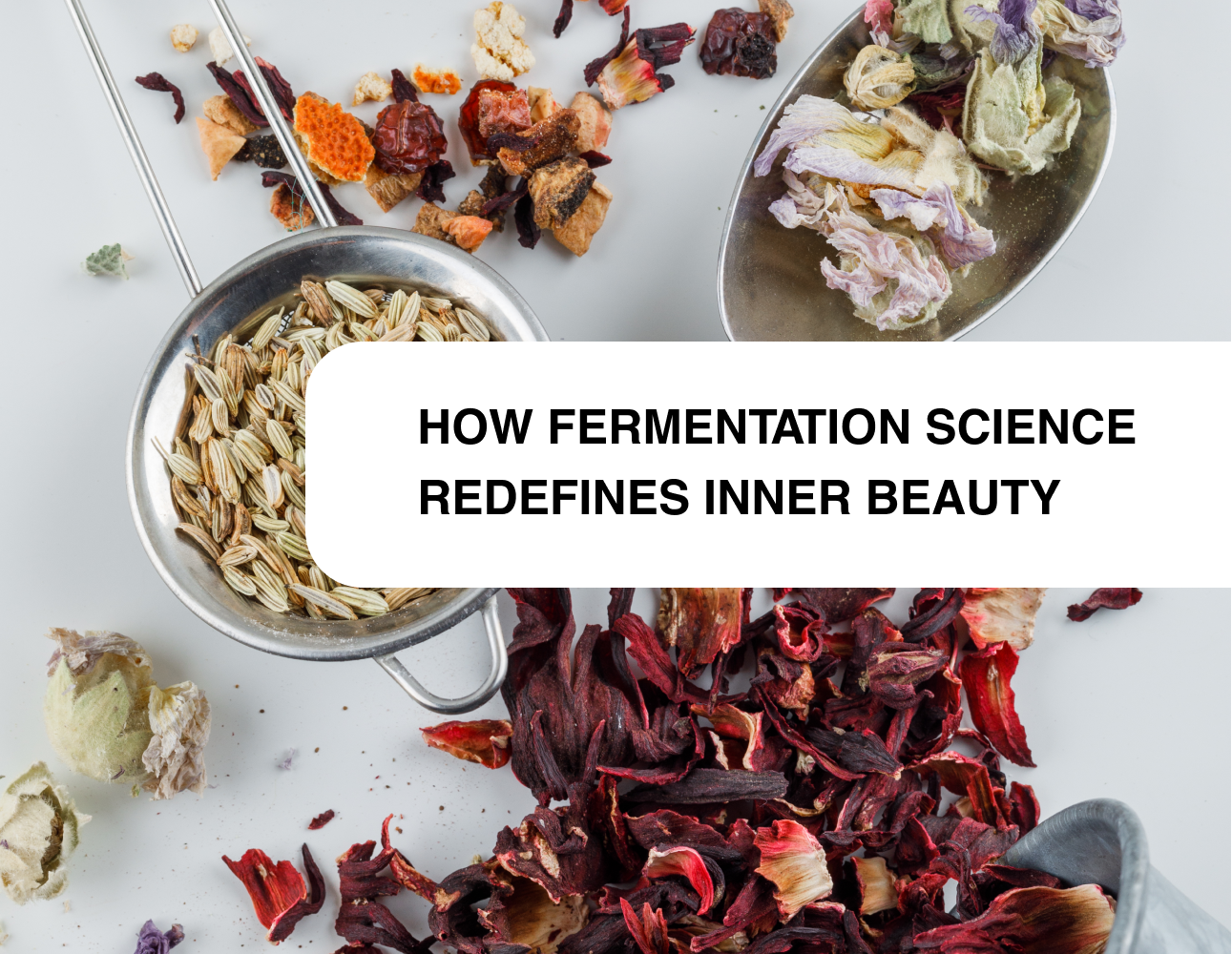Oily skin can be caused by a lot of different things, and in this article, we go through every single one so you can understand a bit more about what causes oily skin.
Oily skin is very common in people of all ages, with those in their puberty stage being a bit more affected. The causes of oily skin are broad, and some can be controlled while others can’t. In this post, I'll shed some light on the possible causes of oily skin that, consequently, lead to breakouts and acne.
Further, I'll share some tips by dermatologists on how to take care of your skin with simple and effective tips you can easily implement, along with some insider secrets from 15 years in the skincare game.
What is Oily Skin?
Everyone’s skin produces oil (sebum) from sebaceous glands found all over our skin. Oily skin is when your sebaceous glands overproduce oil. Oily skin types are prone to having a shinier appearance, and larger pores.
Too much oil can cause your pores to become clogged leading to frequent breakouts, blackheads, and some cases persistent acne.

Sebum (the oily substance produced by sebaceous glands) isn’t entirely bad. It has an important job of lubricating your skin, protecting it from the sun as well as eliminating and preventing bacteria, healing wounds and reducing inflammation.
However, a sebum oversupply is still a problem. Shiny skin by itself can be embarrassing, pair this with inflamed breakouts and blackheads and you’ve got a recipe for extreme self-esteem issues.
You might notice that certain products don’t work as well for your skin as they do for other people. It can be difficult to find makeup, moisturizers, cleansers, and other products that work for oily skin.
You can’t get rid of oily skin altogether, but there are some things you can do to decrease the amount of oil you produce. Further, the causes of oily skin are diverse and vary from genetics, lifestyle, and environmental factors.
Common Causes of Oily Skin
To manage your oily skin it helps to first understand the reason why you have a bit more glow than the average Joe. Below we'll discuss the different causes of oily skin.
Genetics
When looking up “what causes oily skin” the first answer you’ll see is genetics, here’s why. As with other conditions, genetics play a key role in certain aspects of your bodily functions such as burning fat faster, physical growth, cognitive ability, and yes - oil production.

Our genetic traits dictate whether we’ll have oily skin or not. If one of your parents has oily skin, you’ll likely have it too. And, similarly, if you have oily skin and have children, they have a high probability of inheriting it.
Hormones
Hormones are another answer to what causes oily skin. Since the sebaceous glands have receptors that are influenced by sex hormones (just like other parts of the skin) they are affected mostly by androgens.
Androgens are male sex hormones, like testosterone, that are present in both sexes and help people mature physically during puberty. According to the Cleveland Clinic, “females with high androgen levels may develop acne, facial hair, and other issues”.
This happens due to an increase in sebum production during puberty in both sexes, which is why you might notice or remember having oilier skin during puberty. Sebum production can vary during the menstrual cycle too, therefore all people menstruating, regardless of age, can be affected by oily skin.
Anxiety & Stress
Yes, your high-stress job, exams, and anxiety can be sources of excessive sebum production. A flood of stress hormones is released into the bloodstream when we’re under pressure, afraid, or any other emotion linked to fear.
The stress hormone, cortisol, has the ability to attach to the sebaceous glands, causing your skin to produce more oil.

A 2001 study about psychological stress and epidermal permeability concluded that “a large number of skin diseases, including atopic dermatitis and psoriasis, appear to be precipitated or exacerbated by psychological stress (...).
It was recently shown that psychological stress negatively impacts cutaneous permeability barrier function and that coadministration of tranquillizers blocks this stress-induced deterioration in barrier function”.
Diets High in Sugars
Diets high in sugar and carbohydrates can cause oily skin since they stimulate sebum production. Carbohydrates are known for increasing levels of growth hormones in the body, which can lead to excess secretion of oil as we explained in the hormones section.

A study published in 2016 about the possible role of diet in adult female acne stated that “acne in adults is associated with a Western diet, defined as high consumption of milk, high glycemic load and high-calorie intake”.
This has to do with an increment in certain growth hormones and factors that lead to sebum production and aggravation of acne as a consequence. If you love chocolate, for example, there’s a reason why you might be struggling with acne.
In general, any type of food that is high in carbs and sugar, and is consumed regularly, can lead to elevated sebum production, and consequently, acne.
When no action is taken, such as reducing your sugar and carbs intake and adding more fiber to your diet (fruits, vegetables, and whole grains), it gets harder and harder to control oily skin and get rid of acne.
Weather Conditions
Yes, the weather can be another answer to what causes oily skin, and it has some interesting reasons. When you’re in a place that has a lot of humidity, whether it is outdoors or indoors (for a prolonged period), it can provoke sweating and a boost in oil production.
This exelerated oil production is why during summer you’re more likely to be affected by oily skin as well as people who live in humid locations.

Where you live and the time of the year can impact your sebum production, but there are some things you can do to fight this. Jump to the end of the article to find the best tips for dealing with oily skin.
Using Too Much Makeup
Applying a huge amount of makeup every day for long periods, without proper pre and post-makeup skincare discipline can cause your skin to become oily.
If makeup isn’t properly washed off or left on overnight your skin gets suffocated with a thick layer of product. Although makeup is essential for most women, avoid leaving it on your skin overnight and thoroughly wash it off with double cleansing.

The type of product you use and how you apply it also play important roles for oily skin sufferers. It’s no secret that poor-quality makeup can cause serious issues for your skin. If you’re not using approved products that are made for oily skin, you’re likely going to increase the amount of oil your skin produces.
Poor Skincare Routine
Things like washing your face every day, moisturizing, and applying sunscreen when going outside should be your number one priority if you want to manage oily skin.
Washing your face is incredibly important for oily skin since the amount of oil, dirt and debris that builds up during the day is more than other skin types. Not properly cleansing can lead to build-up, which will cause your pores to become clogged.

When it comes to moisturizing, there’s a phrase all dermatologists repeat, which is “the body produces what is lacking”. If you think about it, your body is producing more oil because it needs to lubricate your skin; the same happens when you sweat, and thus your body needs something to naturally cool down.
Of course, both things are uncomfortable, but tell you a lot about what you’re not giving yourself. After washing your face (with simple water and soap or a special cleanser) moisturize your face to keep it hydrated. If you use the right products, this will not leave your face greasy all day.
As for sunscreen, you need to keep your face protected from UV rays for a variety of reasons. When you expose your skin to the sun, it dries it out, and when this happens, the sebaceous glands work overtime to lubricate your skin, leading to an overproduction of oil.
Using sunscreen can help with oily skin as well as keep it protected from sun damage that can end up in skin cancer.
Tips For Controlling Oily Skin
We went through the different causes of oily skin, now it is time to talk about some effective tips from dermatologists to treat excessive oil production.
As we stated above, it's crucial that you wash your face daily, more specifically every morning, evening and after exercising (to get rid of sweat).
Cleanse gently and avoid scrubbing which can irritate your skin and make matters worse. Since you’re dealing with an overproduction of oil, try choosing products that don’t have oil in their formulas to prevent clogging your pores.
Apply this tip with makeup, cleansers, moisturizers, and other products that you use on your skin. Experts recommend always removing your makeup before going to sleep and not touching your face during the day.
Keeping your makeup on can clog your pores, and if you’re constantly touching your face (with or without makeup) you spread the same oil you’re producing all over your face. The same happens if you pop a pimple (please don’t!), thus you spread pus to other areas of your skin which can result in breakouts too.
If you want to eliminate oil during the day without washing your face all the time (another thing that’s not recommended since you accidentally get rid of good oils, resulting in an overproduction of sebum), try carrying blotting paper with you and gently pressing it over your face to absorb the excess oil.
Recommended Products For Oily Skin
There are many products you can invest in to control oily skin. Below we gathered the best products and ordered them into an oily skincare routine.
Recommended routine
- Remove makeup
- Cleanse (double cleansing to remove makeup)
- Tone
- Serum
- Moisturize
- Masks 1-2 times weekly
- SPF
Use SPF in the morning, double cleanse at night, and serum can be applied morning and/or night. Use masks 1-2 times per week or as needed. Cleanse once in the morning and use a makeup remover + cleanser at night to thoroughly remove makeup. Feel free to adjust this routine as you find what works best for your skin.
For removing makeup we recommend:
 |
 |
 |
For cleansing we recommend:
 |
 |
 |
Toners for balancing oil production:
|
 |

|

LIOVERITE Balance Control Lotion
|
Serums that effectively treat oily skin:

|
 WHITE ICHIGO Organic Tech-Serum with Vitamin C
|

|
Our moisturizing must-have products for oily skin include:
 |
 |
Masks for reducing oil (1-2x per week or as needed):
Finally, we recommend the following sunscreens to keep your face protected all day long:
Causes Of Oily Skin Conclusion
Summing up, your skin type is affected by genetics, stress and anxiety levels, hormones, environmental factors as well as your diet, skincare routine, and makeup.
The most important thing to remember is to maintain a good skincare routine: remove makeup, cleanse, toner, serum, moisturize, and SPF. Using the right masks can also level up your oily skincare routine.
Keep an eye out for more related blogs about skincare and how to look after your skin to keep it healthy and looking its best.










